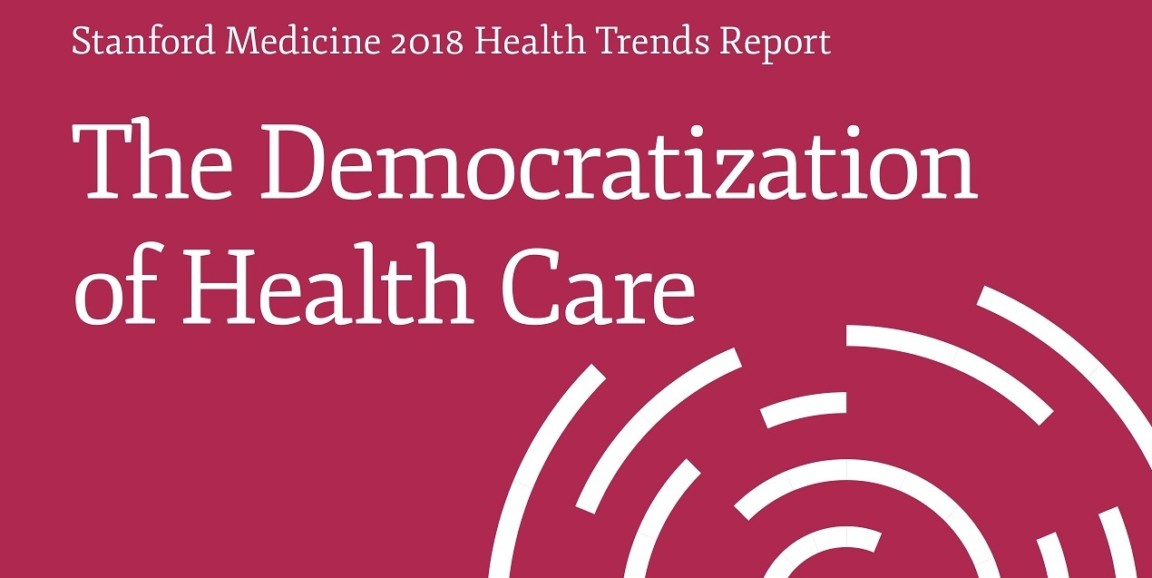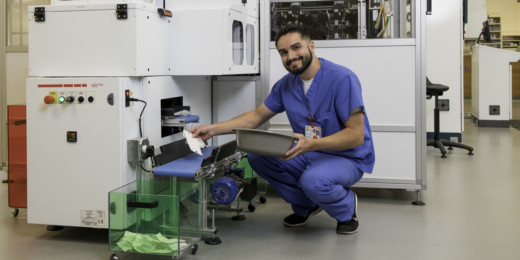The growing amount of data in medicine will transform research, clinical care and the role patients play in their own health care, according to Stanford Medicine's second annual Health Trends Report.
This will lead to an unprecedented democratization of health care, Dean Lloyd Minor, MD, said in a press release that accompanies the report.
"We are on the cusp of something that’s never been possible before — the ability to truly democratize the practice of health care, spreading expertise without friction wherever it’s needed,” Minor said. “Whole realms of expertise, previously siloed, are beginning to open up to more people in more places than ever before.”
Those changes are made possible by advances in data science and artificial intelligence and by the entry of technology firms into the health care market, the report describes.
The report points to three pillars influencing the democratization: intelligent computing; sharing; and security, privacy and safety.
AI and intelligent computing has the potential to save money, as much as $150 billion by 2026 in the U.S. according to one estimate. It may also improve the quality of care by allowing for quicker and more accurate diagnoses, by improving the quality and personalization of treatment plans, and by increasing patients' access to their care team.
Data sharing, the second pillar, remains a key challenge facing the health care industry, although increasingly tech companies and other organizations, and even individuals, are innovating in both clinical care and in medical research.
The final pillar is security, privacy and safety, fundamental principals that underlie the future of health care. More from the release:
Ensuring patient data is protected will continue to be a priority as the medical industry realizes the need to become more intentional about information security practices and preparedness.
The report showed that in 2018, the future of a democratized health care ecosystem moved closer to reality.
“It’s clear that we have work to do in terms of making this incredible amount of data easier to access, share, and protect,” Minor said. “But I am certain that we are advancing toward a future of care that is more preventive, predictive, personalized, and precise.”




